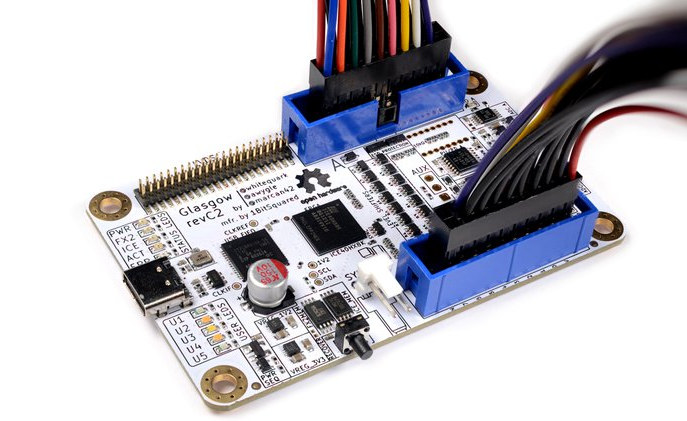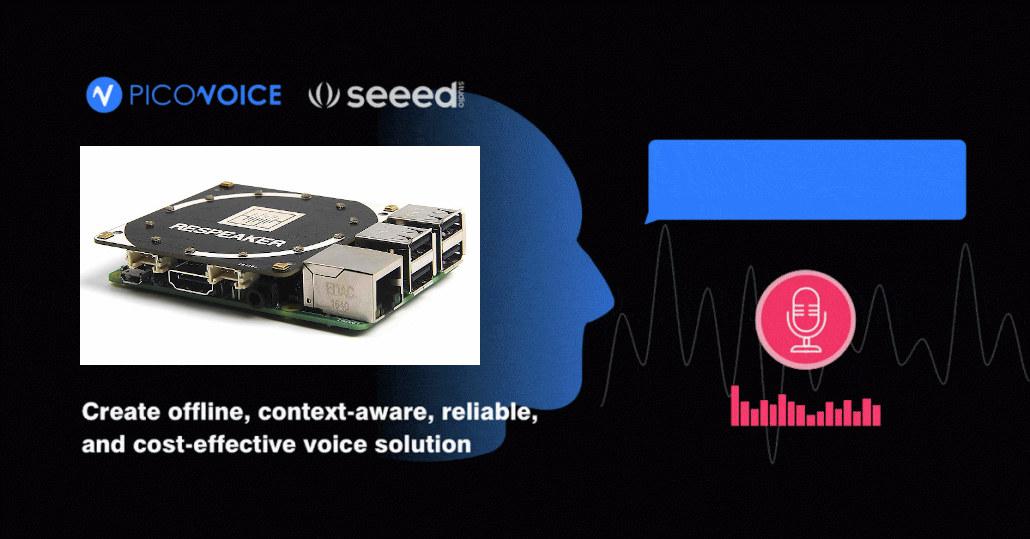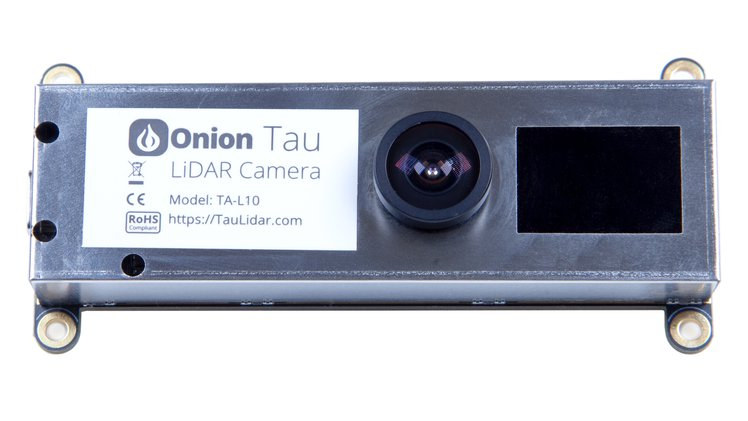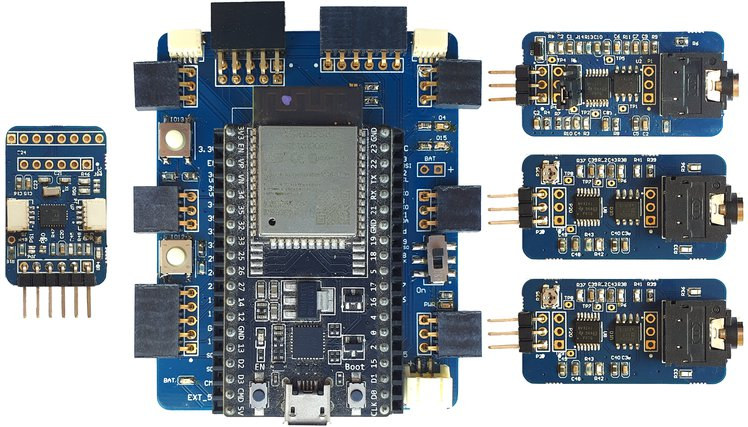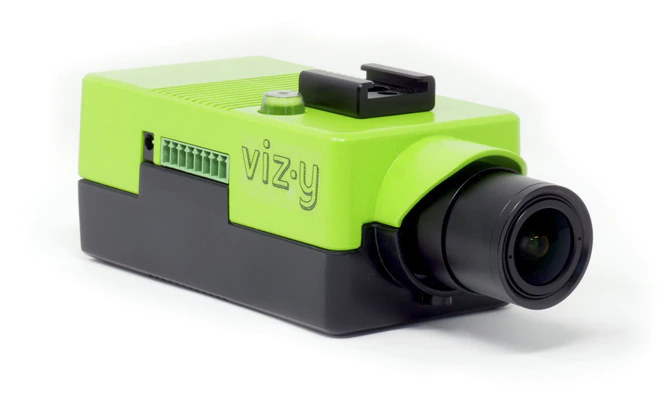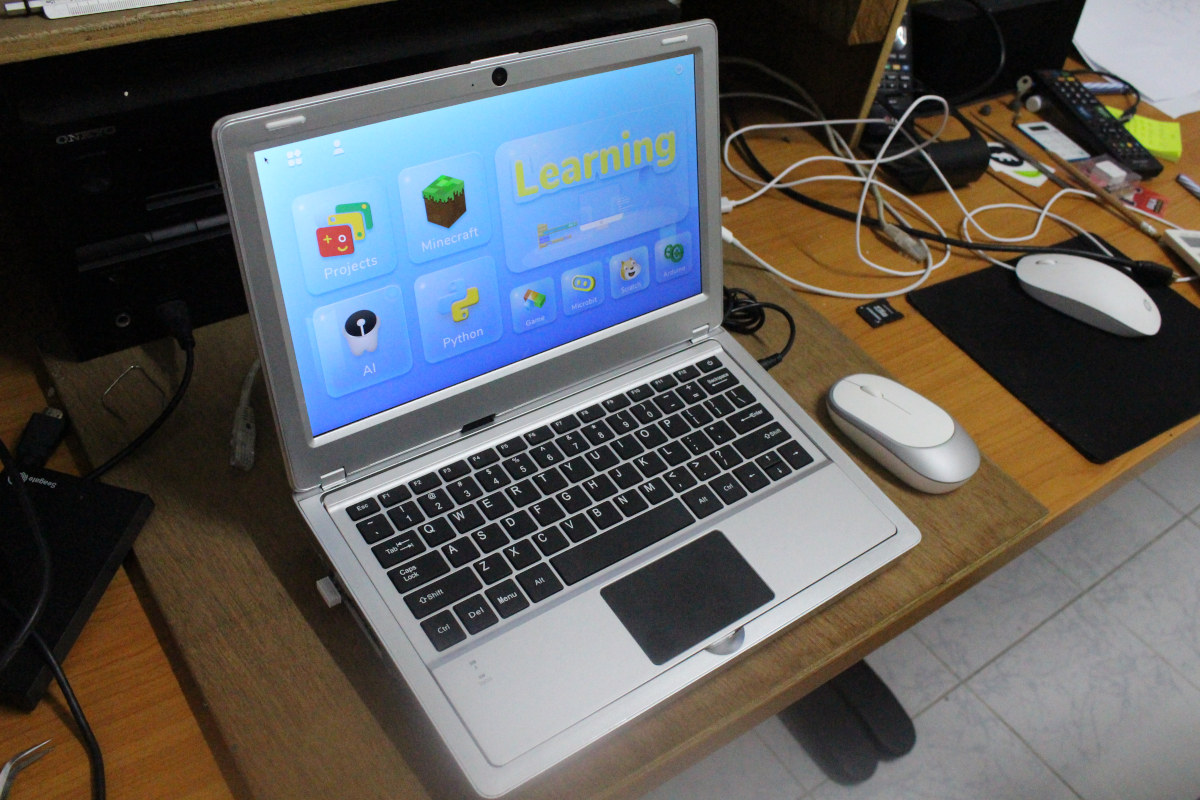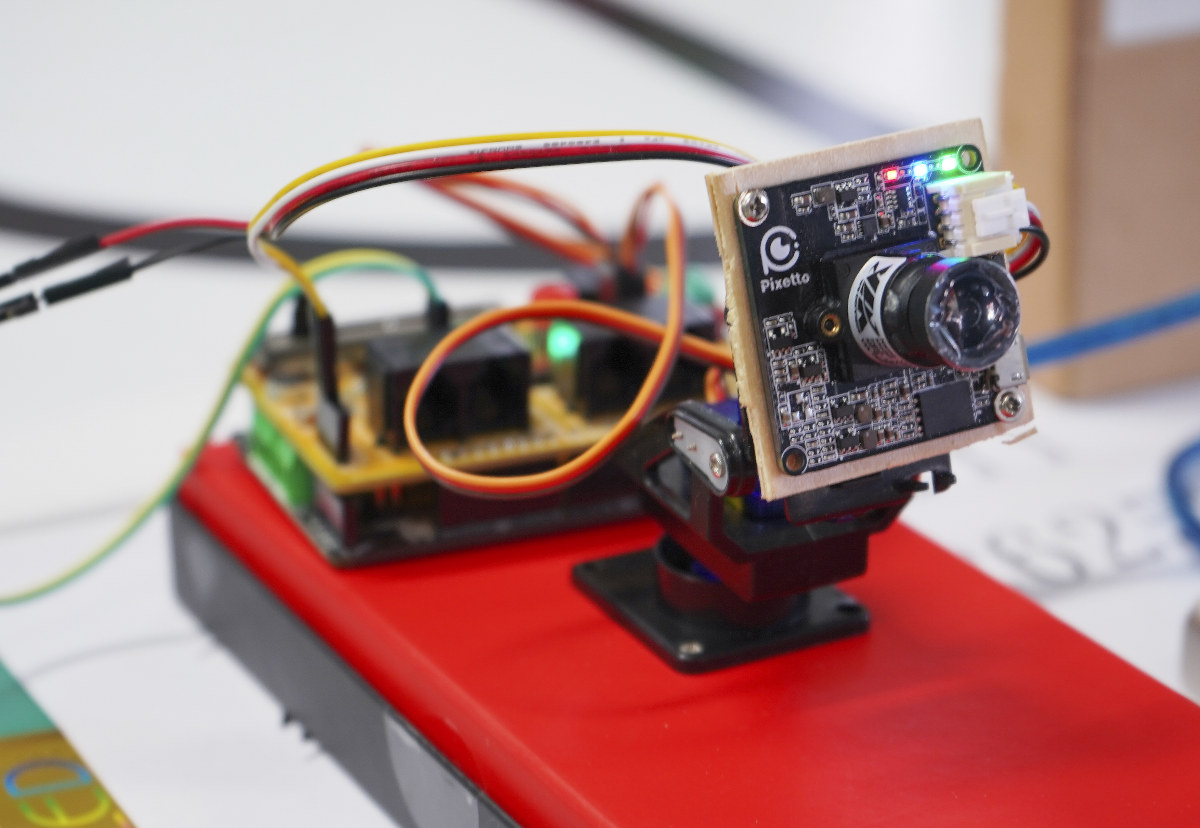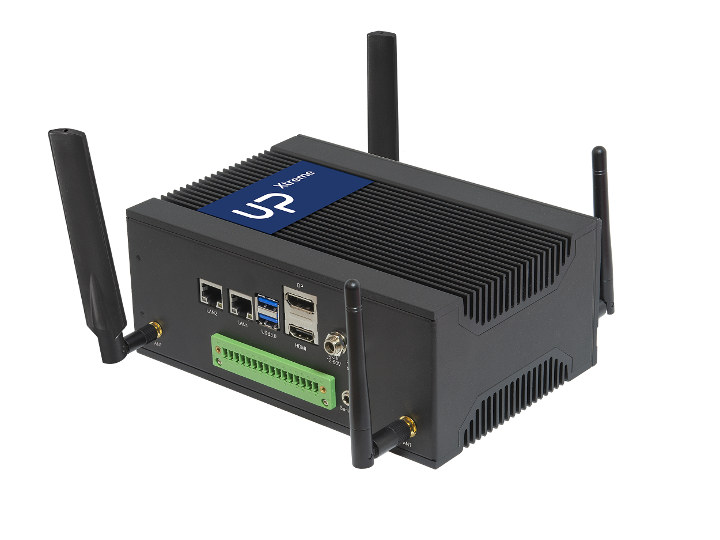We’ve seen some pretty interesting boards for hardware hackers and reverse engineers in recent months with the likes of Ollie and Tigard USB debug boards that allow interfacing various hardware interfaces and/or flashing firmware to different types of target boards. Here’s another one: Glasgow Interface Explorer. Based on Lattice Semi iCE40 FPGA, the board is described as being “designed for hardware designers, reverse engineers, digital archivists, electronics hobbyists, and anyone else who wants to communicate with a wide selection of digital devices with minimum hassle”. Glasgow Interface Explorer specifications: FPGA – Lattice Semiconductor iCE40HX8K FPGA USB – 1x USB-C port connected to FX2 high-speed USB interface capable of 480 Mbps throughput I/O headers 2x 8-channel I/O banks with 16 highly flexible I/O Each I/O bank comes with A dedicated programmable linear voltage regulator, configurable from 1.8 V to 5 V and providing up to 150 mA of power A dedicated […]
Picovoice supports custom wake word, offline voice recognition on Raspberry Pi
ReSpeaker 4-mic array is a Raspberry Pi HAT with four microphones that can work with services such as Google Assistant or Amazon Echo. It was launched in 2017. So nothing new on the hardware front. What’s new is the expansion board is now supported by Picovoice that works much like other voice assistants except it allows people to create custom wake words and offline voice recognition. Picovoice is described as an end-to-end platform for building customized voice products with processing running entirely on-device. It is cross-platform, is said to be more resilient to noise and reverberation, and thanks to running offline, it offers low-latency and complies with HIPAA and GDPR privacy regulations. The platform is comprised of two main engines: Porcupine lightweight wake word engine that supports custom wake words trained through PicoVoice console. The engine can listen to multiple wake words and is cross-platform with support for Raspberry Pi, […]
Onion Tau is an affordable 3D depth LiDAR camera (Crowdfunding)
Onion is better known for its Omega IoT boards running OpenWrt, but the company has now come up with a completely different product: Onion Tau 3D depth camera equipped with a 160×60 LiDAR sensor. The device plugs like a USB webcam to a host computer or board, but instead of transferring standard images, the camera produces 3D depth data that can be used to detect thin objects, track moving objects, and be integrated into other applications leveraging environment mapping such as SLAM (Simultaneous localization and mapping). Onion Tau LiDAR camera (TA-L10) specifications: Depth technology – LiDAR Time of Flight Depth stream output – 160 x 60 @ 30 fps Depth range – 0.1 to 4.5 meters Depth field of view (FOV) – 81˚ x 30° Grayscale 2D camera image sent with 3D depth map data Host interface – USB Type-C port Dimensions – 90 x 41 x 20 mm; 4x […]
E3K all-in-one wireless bio-sensing platform supports EMG, ECG, and EEG sensors (Crowdfunding)
Over the year, The maker community has designed several platforms to monitor vital signs with boards like Healthy Pi v4 or HeartyPatch both of which are powered by an ESP32 WiFi & Bluetooth wireless SoC. WallySci has designed another all-in-one wireless bio-sensing platform, called E3K, that also happens to be powered by Espressif Systems ESP32 chip, and can be connected to an electromyography (EMG) sensor to capture muscle movements, an electrocardiography (ECG) sensor to measure heart activity, and/or an electroencephalography (EEG) sensor to capture brain activity. The board also has an extra connector to connect a 9-axis IMU to capture motion. E3K main board which the company refers to as “Data Communication and Processing Unit” (DCPU) comes with the following specifications: Supported wireless board – ESP32-DevKitC with ESP32-D0WD-V3 dual-core 32-bit LX6 microprocessor, up to 240 MHz, Integrated 520 KB SRAM, 16 MByte SPI flash. 2.4 GHz WiFI 4, and Bluetooth […]
Vizy AI camera runs Tensorflow, OpenCV, PyTorch on Raspberry Pi 4 (Crowdfunding)
We previously covered Charmed Labs PIXY2 computer vision camera based on an NXP LPC4330 microcontrollers that worked with Arduino, Raspberry Pi, and other development boards. The company is now back with a fully integrated more powerful solution with Vizy AI camera featuring a Raspberry Pi 4 SBC with up to 8GB RAM. Vizy AI camera key features and specifications: SBC – Raspberry Pi 4 with Broadcom BCM2711 quad-core Arm Cortex-72 processor, up to 8 GB RAM Camera – High-resolution camera based on Sony iMX477 12.3 MP sensor that can capture at over 300 frames/second and support both daytime and nighttime viewing; Both M12 and C/CS lenses are supported Video Output – 2x micro HDMI ports Audio – Analog stereo audio port Networking – Gigabit Ethernet, dual-band WiFi 5, and Bluetooth 5.0 USB – 2x USB 3.0 ports, 2x USB 2.0, 1x USB Type-C port from Raspberry Pi 4 (But not […]
CrowPi2 Raspberry Pi 4 Education Laptop Review
I started my review of CrowPi2 Raspberry Pi 4 Learning Kit a while ago and at the time I showed content from the kit and its first boot. I’ve now spent more time with this very special Raspberry Pi 4 laptop and will focus this review on the education part, namely CrowPi2 software, but will also look at thermal cooling under stress with and without a fan, and try to install another Raspberry Pi compatible board inside the laptop shell. CrowPi2 Education Software It’s quite important to read the user manual before getting started as there are a few non-intuitive steps you may have to take. First I assume the wireless keyboard would just connect after pressing the power button, but it did not. The user manual explains the RF dongle is inside the mouse, and once you connect it you’ll be able to use the keyboard that has some […]
VIA Pixetto Hi3518E V300 HD Camera Board Targets Artificial Intelligence and Machine Learning Education
VIA Technologies has launched the VIA Pixetto vision sensor aims to teach artificial intelligence (AI) and machine learning (ML) to students aged twelve and above. The Linux board features an Hisilicon Hi3518E V300 Cortex-A7 HD camera SoC combined with 64MB RAM, 128MB SPI flash, a MicroSD slot, as well as GalaxyCore GC2053 2M CMOS sensor offering 1920 x 1080 resolution and a 130° field of view. VIA Pixetto hardware specifications: SoC – Hisilicon Hi3518E V300 Cortex-A7 HD camera SoC @ 900 MHz with H.264, H.265, MJPEG/JPEG encoder System Memory – 64MB DDR, MicroSD card slot Storage – 128MB SPI flash Camera – GalaxyCore GC2053 2M CMOS sensor with 1920 x 1080 resolution, 130° FoV Audio – Microphone USB – 1x Micro USB 2.0 port Connectivity – WiFi 4 via Hisilicon Hi1131 low-power Wi-Fi chip and ceramic antenna Expansion – Grove connector Misc – 3x LEDs (Power, OS boot, active status), […]
UPX-Edge BrainFrame Edge AI DevKit Targets Smart Video Analytics
AAEON UP Xtreme Edge (UPX-Edge) is a rugged embedded computer built around the company’s UP Xtreme SBC with a choice of 15W Whiskey Lake-U processors ranging from Celeron 4305UE to Core i7-8665UE, and optional Intel Movidius X AI accelerator cards. We previously noted the company had launched UP Xtreme Smart Surveillance kit integrating Milestone video management software (VMS) and SAIMOS video analytics software to the embedded computer. AAEON has now partnered with another company – AOTU.AI – to announce the launch of the BrainFrame Edge AI Developers Kit (DevKit) aiming to help developers and system integrators to rapidly create and deploy Smart Vision applications. The solution relies on UP Xtreme Edge mini PC fitted with an Intel Core i5-8365UE processor and 16GB RAM, 64GB eMMC flash, and two Intel Movidius Myriad X VPUs. We’ve also gone through Up Xtreme Edge specifications, so let’s instead focus on the software. This is […]


